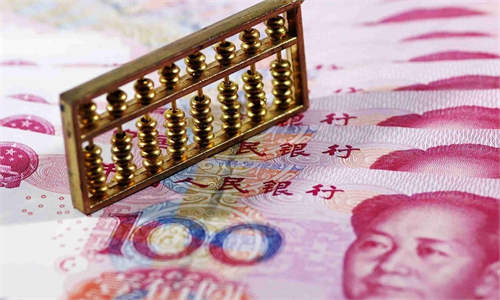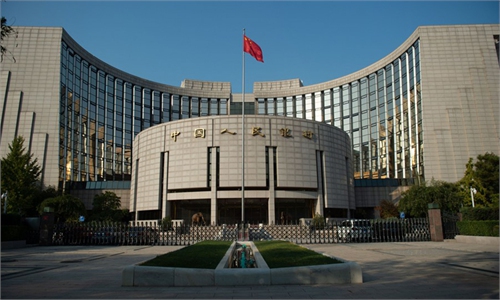Chinese yuan exceeds the dollar in China-Hungary trade amid stronger connectivity

An aerial view of Budapest, Hungary File photo: VCG
If one thing could epitomize the stronger connectivity between China and Central and Eastern Europe, it is the rising use of their own currencies to settle trade and investment.
During these years, serving as the yuan clearing bank beginning 2015, Bank of China Hungary Branch's clearing network has continued to expand, with the yuan clearing volume increasing year by year. And, the currency has now become the main channel for customs clearing.
This year, the bank's clearing volume is expected to exceed 200 billion yuan ($27.4 billion), with settlement volume likely to exceed 30 billion yuan, providing convenience for bilateral trade and investment between enterprises of the two countries, Li Kexin, CEO of Bank of China (Central and Eastern Europe) and General Manager of Bank of China Hungary Branch, told the Global Times in an exclusive interview.
The trend toward yuan clearing and settlement came as the connectivity between China and the Central and Eastern country is developing rapidly in terms of trade and investment, facilitated by the joint construction of the Belt and Road Initiative (BRI), despite the West's "decoupling" rhetoric against China.
Another reason behind the growth is that enterprises on both sides are embracing the yuan as a new alternative and more reliable currency to the US dollar. The latter's growing clearing cost is making it less and less favorable to traders and investors, experts said.
Gaining a foothold
This year marks the 10th anniversary of the BRI, and it also commemorates the 20th year of Bank of China (Central and Eastern Europe) presence in Hungary. As the first operational financial institution that China established in the Central and Eastern European region, with Hungary as its hub, it extends its reach across the entire region through its subsidiary branches in Prague, Vienna, and Bucharest, and the internationalization of yuan is the core of its task.
As the sole yuan clearing bank in the Central and Eastern European region, authorized by China's central bank, the institution, in addition to actively promoting various cross-border yuan transactions, offers a range of financial services to Chinese and Hungarian businesses, including supporting the development of Chinese enterprises in the local market through services such as providing financial guarantees.
Moreover, they put particular emphasis on assisting customers in exploring the Chinese market, participating in the joint initiative, and expanding yuan-related services, Li said.
The fast development of yuan internationalization in Central and Eastern Europe is closely tied to the strengthening of trade and investment relations between China and the countries in that region, as Zhao Qingming, a Beijing-based veteran financial expert, told the Global Times.
Bilateral trade cooperation has overcome the impact of the COVID-19 and grown rapidly despite facing external headwinds, while Hungary has become one of China's most important trading partners in Central and Eastern Europe.
Bilateral trade volume reached a milestone of $15.52 billion in 2022, an increase of 84 percent from 2013, when the BRI was first proposed.
In terms of financial cooperation, Hungary has become China's largest investment destination in Central and Eastern Europe.

A glimpse of the street scene in Budapest, Hungary on August 15, 2023 Photo: Yin Yeping/GT
Against this background, as of the first half of this year, the Bank of China (Central and Eastern Europe) has been involved in dozens of BRI projects, with a total outstanding loan balance running into billions of dollars.As a seasoned financial professional deeply rooted in the industry, Li has a comprehensive understanding of the development of yuan's internationalization throughout the region.
"We have successfully expanded our client base to include dozens of institutional customers, including central banks, multilateral organizations, and local commercial banks, all of whom have opened yuan clearing accounts with our bank," Li said. This has expanded the clearing network to cover 11 countries, including Hungary, the Czech Republic, and Austria.
At present, Bank of China has signed cooperation agreements with a number of Hungarian financial institutions such as the Central Bank of Hungary and the Budapest Stock Exchange and provides them with yuan clearing and settlement services. The Central Bank of Hungary has included the yuan into its official reserves.
The Bank of China is not alone in yuan promotion in the region. In April of this year, China Construction Bank (Europe) Hungary Branch was officially opened in Budapest, setting the stage for accelerated financial cooperation in the future. China Development Bank has also set up a branch in Hungary.
Expanding swaps
Hungarian Central Bank is also among the first group of the central banks in European countries to sign bilateral currency swap agreements with China's central bank.
Thanks to the joint efforts of the financial institutions from China and Hungary, the yuan-related products in the local market continue to diversify, and the convenience of yuan usage continues to improve. This has led to more China-Hungarian enterprises choosing yuan instead of the dollar for trade settlements, Li said.
In Hungary's trade of goods with China, yuan settlements rose from 33 percent in 2020 to 37.33 percent in September 2022, surpassing the use of the US dollar, according to the statistics that the Bank of China Hungarian Branch sent to the Global Times.
In key trading sectors, the percentage of yuan settlements has increased from 3.13 percent to 8 percent during the same period, according to media reports.
Regarding the rise of the Chinese yuan in trade settlement, Levente Horváth, founding Director of Eurasia Center of the John von Neumann University, who is also former Hungary consul general of Hungary in Shanghai, told the Global Times that "in recent years, we have realized that the yuan is increasingly internationalized, and it has become more important in propelling bilateral trade."
While currently, Hungary still primarily trade in euros or US dollars for being part of the EU, "we are open to this kind of cooperation [by using the yuan]," Horváth said.
In the future, there is room for further improvement in yuan clearing and settlements in Central and Eastern Europe, possibly resulting in a more significant market share for the Chinese currency.



